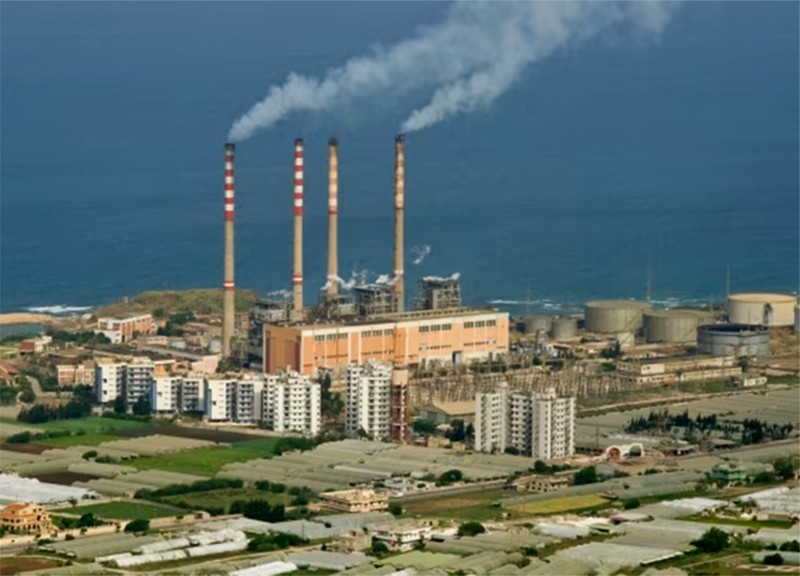
Ninety per cent of country’s crude came from Iran before fall of Bashar al-Assad, says refinery chief
Sarah Dadouch in Baniyas, FINANCIAL TIMES
Syria’s largest oil refinery has halted operations after ceasing to receive the crude from Iran that previously made up the vast majority of the country’s input, its general manager told the Financial Times.
Baniyas oil refinery, which processes between 90,000 and 100,000 barrels of crude a day, produced its last batch of petrol on Friday, said Ibrahim Mousallem, following the fall of Iran-backed former president Bashar al-Assad.
“We are only doing maintenance that takes a short amount of time so that we are ready for when crude oil is made available,” he added.
Mousallem said members of Syria’s new leadership — staffed by figures from the Salvation Government that ruled a rebel enclave in north-west Syria for years — told him they anticipated a removal of sanctions on the country, allowing Syria to import oil from non-Iranian sources and also enabling the refinery to purchase parts for its equipment.
“They said, God willing, the sanctions will be lifted and you will be able to purchase spare parts,” he said.
He added that “there is a decent amount [of fuel] in storage” and “the situation is stable”.
The new interim government was put in place by Hayat Tahrir al-Sham (HTS), an Islamist group that is designated as a terrorist organisation by the US, EU, UN and others. Despite the designation, western governments have already begun engaging with the group’s leaders. Separately, the Syrian state is also subject to wide-ranging western sanctions.
Oil shortages are a major challenge facing the interim Syrian government as it tries to keep basic services functioning and start to revive the war-ravaged economy.
US secretary of state Antony Blinken said on Saturday that a shortage in fuel was one of the “immediate needs that I think have to be addressed . . . so that the lights can be turned on, so that the stores can be opened, so people can get around”.
Iran propped up Assad’s military forces and the economy for years, extending a line of credit to the Syrian state to buy Iranian oil and bypass US sanctions on the Syrian government.
But following Assad’s ousting, the new leadership must secure new deals to supply an already beleaguered nation with crucial oil and gas, especially as winter approaches. Syria has one other refinery, with less capacity, in Homs.
In recent years under Assad, Syria imported 90 per cent of its crude from Iran, with the remaining 10 per cent coming from oilfields in Syria, Mousallem said.
The new government was exploring importing both crude oil and its derivatives, Mousallem said. He added that petrol stations had initially been instructed to use up their reserves to ensure the flow of fuel did not stop during the transition period, but those reserves had already been replenished.
Syria as a whole is experiencing an acute electricity shortage, resulting mainly from a lack of fuel to operate power plants. The exception has been Idlib, the stronghold of HTS, which receives power from Turkey. An official in the interim government told the FT earlier this week that power lines from Turkey were already being extended to the city of Aleppo.
Baniyas refinery had been adding to its store of oil products since 2020, Mousallem said, in anticipation of a maintenance project requiring a two-month pause in operations.
He described longstanding problems at the refinery that needed addressing, such as a dilapidated chimney and damage from an earthquake in 2022. The refinery is hastening along smaller maintenance projects as it waits for a new crude shipment. “But the machines can’t stop for too long, which could cause corrosion,” he said.
Between 2017 and 2020, the refinery was sometimes forced to halt operations for as long as two months in the absence of oil shipments, he said.
Mousallem said Syria’s new government, put in place after HTS seized control of most of the country last week, promised to increase salaries for public sector employees by 300 to 400 per cent. Wages for government employees in Syria amount to roughly $25 a month, forcing them to take second and even third jobs or rely on funds from relatives abroad.
He said representatives of the new government were “listening, and not saying much” in their meetings, as they strive to learn the technicalities and inner workings of the former regime’s institutions.














